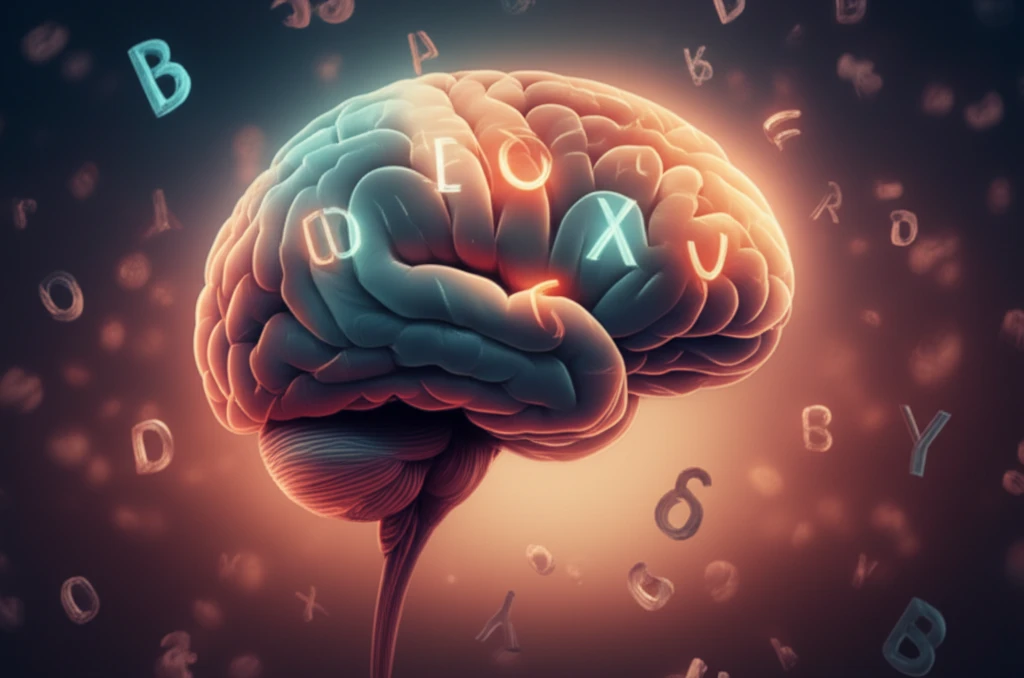
Unlocking the Connection: How Rolandic Epilepsy Can Impact a Child's Reading Ability
"Exploring the unexpected link between a common childhood epilepsy and dyslexia, and what parents need to know."
For parents, ensuring their child's health and well-being is paramount. When a child is diagnosed with epilepsy, it can bring a mix of emotions and many questions. Rolandic epilepsy, also known as benign childhood epilepsy with centrotemporal spikes (BECTS), is one of the most common types of epilepsy in children. Doctors often reassure parents that it is an age-related epilepsy, meaning that most children outgrow it, and it typically doesn't involve brain lesions. However, recent research has shed light on a surprising connection between rolandic epilepsy and dyslexia, a learning disorder that affects reading abilities.
While rolandic epilepsy has long been considered a 'benign' condition due to its favorable outcome, recent studies suggest that it can have subtle but significant effects on a child's cognitive functions, particularly those related to language and learning. Dyslexia, characterized by difficulties in reading accuracy, fluency, and comprehension, can present unique challenges for children and their families. Understanding this potential comorbidity is the first step in providing the necessary support to help children with rolandic epilepsy thrive academically.
This article explores the connection between rolandic epilepsy and dyslexia, drawing on research and expert insights to provide a comprehensive overview. We'll delve into how rolandic epilepsy can impact a child's reading abilities, what signs to look for, and what steps parents and educators can take to support children with rolandic epilepsy who may be at risk for or diagnosed with dyslexia. By understanding the potential link between these two conditions, parents can be empowered to advocate for their children and ensure they receive the support they need to reach their full potential.
Is There a Link Between Rolandic Epilepsy and Dyslexia?

The relationship between epilepsy and language disorders has become an area of increasing interest in recent years. While rolandic epilepsy is generally considered a benign condition, research indicates that it may not be entirely without impact on cognitive functions. Dyslexia, a learning disorder that affects a person's ability to read, spell, and write, has been found to occur more frequently in children with rolandic epilepsy than in the general population. A study published in Arquivos de Neuro-Psiquiatria examined the comorbidity between rolandic epilepsy and dyslexia, revealing significant insights into this connection.
- Phonological Awareness: Both reading and writing abilities rely on phonological awareness. The study found that lower performance, also known as phonological processing skills, correlated with difficulties in reading and writing, a critical component of dyslexia.
- Reading and Writing Skills: Children with rolandic epilepsy showed significantly lower performance in reading and writing tasks compared to their peers without epilepsy. Dyslexia creates problems with decoding (sounding out words) and comprehension, which are fundamental to reading proficiency.
- Verbal Memory: A key finding in the study showed a significant difference in verbal memory between the children with rolandic epilepsy and the control group. The ability to hold and manipulate verbal information is vital for reading comprehension and language-based learning.
What to Do If You Suspect Your Child Has Dyslexia
If you are a parent of a child with rolandic epilepsy and suspect they may also have dyslexia, it's important to take proactive steps to support their learning journey. Early identification and intervention are key to helping children with dyslexia overcome their challenges and reach their full potential. Start by talking to your child's doctor or neurologist about your concerns. They can conduct an initial assessment and refer you to specialists who can provide a comprehensive evaluation.
